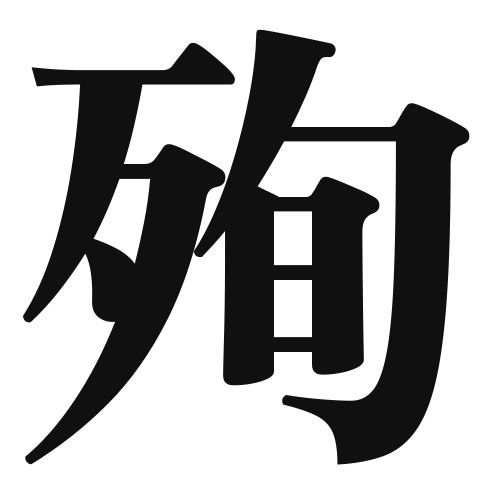1. Overview of Meaning
The kanji “殉” (jun) generally means “to die for” or “to accompany in death.” It often conveys the idea of loyalty or devotion, particularly in the context of following someone in death or sacrifice for a cause.
2. Formation and Radical
Formation of the Kanji: The kanji “殉” is a combination of two components. The left part “殳” (shū) is a radical that relates to weapons or actions, while the right part “隹” (zhuī) represents a bird. Together, they symbolize the act of following or accompanying, often in a serious or fatal context.
Radical: The radical for “殉” is “殳,” which is associated with actions or events that involve conflict or sacrifice.
3. Examples of Usage
Common Words and Phrases:
- 殉職 (junshoku) – to die in the line of duty
- 殉教 (junkyō) – martyrdom for one’s faith
Example Sentences in Daily Conversation:
- 彼は殉職した警官を尊敬しています。 (He respects the police officer who died in the line of duty.)
- 彼女は信念のために殉教した。 (She became a martyr for her beliefs.)
4. Synonyms and Antonyms
Similar Kanji:
- 犠牲 (gisei) – sacrifice; this term emphasizes the act of giving up something valuable, often life, for a greater cause.
- 奉仕 (hōshi) – service; this term focuses on serving others, which may or may not involve sacrifice.
Antonyms:
- 生 (sei) – life; this kanji represents existence and vitality, contrasting with the concept of dying for a cause.
5. Cultural and Historical Background
Relation to Japanese Culture: The concept of “殉” is deeply rooted in Japanese culture, particularly in the context of loyalty and honor. It is often associated with samurai values, where loyalty to one’s lord could lead to death in battle or ritual suicide.
Proverbs and Idioms:
- 「命を懸ける」 (inochi o kakeru) – to risk one’s life; this phrase reflects the spirit of sacrifice that is often linked to the meaning of “殉.”
